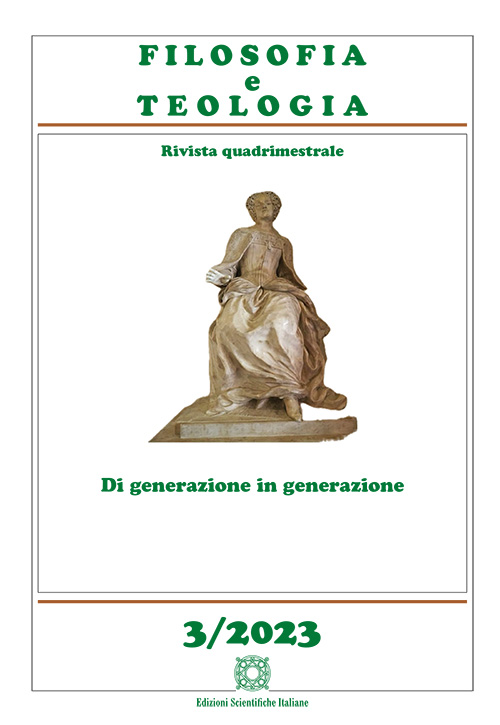Filosofia e Teologia XXXVII, 3 (2023), Di generazione in generazione, pp. 393-407
Il saggio introduce una distinzione tra due termini ebraici, toledot e dorot, entrambi usati per “generazione” con alcune sfumature, e fornisce il quadro biblico e rabbinico per la trasmissione dell’identità ebraica attraverso narrazioni midrashiche e rituali religiosi. Il miglior esempio di tale strumento pedagogico è l'Haggadà shel Pesach, l'antico testo ebraico e aramaico utilizzato per celebrare la Pasqua. Successivamente, il tema della catena generazionale viene analizzato attraverso la lente delle opere, halakhiche e filosofiche, di Mosè Maimonide, per mostrare come egli rifiuti la teoria del "declino della generazione" e, invece, abbracci l'idea dell'"avanzamento della generazione". generazione' alla luce della sua dottrina del messianismo. Emmanuel Levinas condivide la stessa prospettiva intellettuale e morale.
Parole chiave: Le-dor wa-dor, Haggadà shel Pesach, Mosè Maimonide, Emmanuel Levinas
The essay introduces a distinction between two Hebrew terms, toledot and dorot, both used for ‘generation’ with some nuances, and provides the biblical and rabbinical framework for the transmission of the Jewish identity through midrashic narratives and religious rituals. The best example of such a pedagogical tools is the Haggadà shel Pesach, the ancient Hebrew and Aramaic text used to celebrate Passover. Then, the theme of the chain of generation is analyzed through the lens of Moses Maimonides’ works, halakhic and philosophical, to show how he rejects the theory of the ‘decline of generation’ and, instead, embraces the idea of the ‘advance of generation’ in light of his doctrine of messianism. Emmanuel Levinas shares the same intellectual and moral perspective.
Keywords: Le-dor wa-dor, Haggadà shel Pesach, Mosè Maimonide, Emmanuel Levinas

